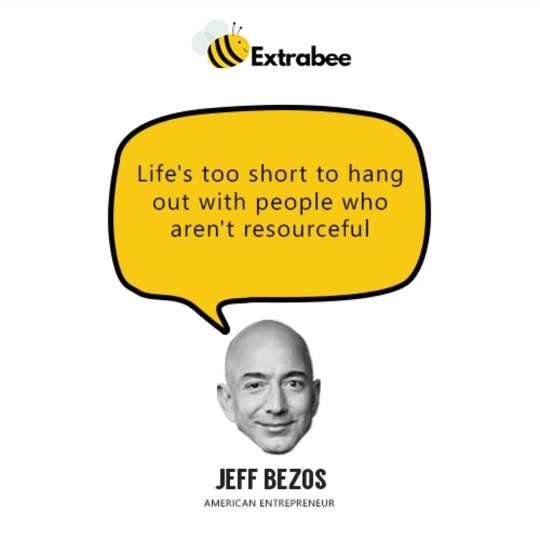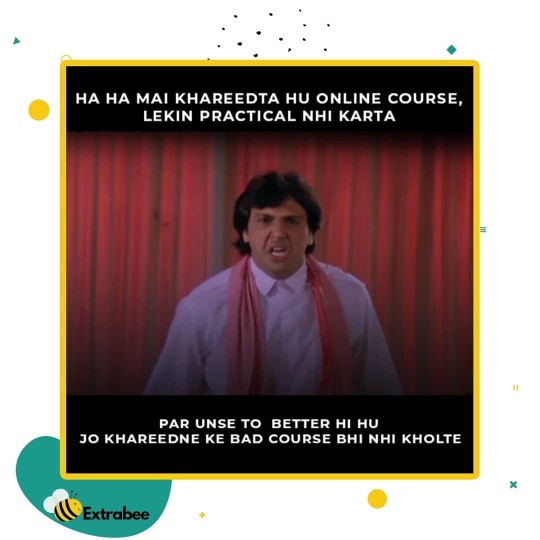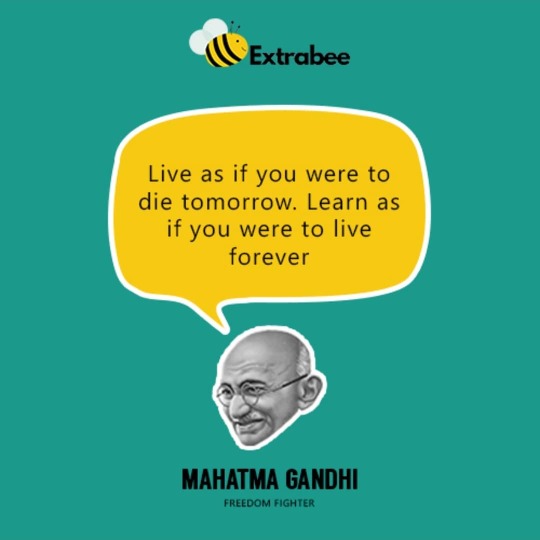#remotlearning
Explore tagged Tumblr posts
Photo

Welcome to the hive. . . . . . . . #Extrabee #everythingwithinyourhive #remotlearning #edtech#Extrabee #everythingwithinyourhive #remotelearning #edtech #edutech #indianeducation #learn #educational #learningapp #teach #globaleducation #elearning #qualityeducation #educationmatters
#extrabee#everythingwithinyourhive#remotlearning#edtech#remotelearning#edutech#indianeducation#learn#educational#learningapp#teach#globaleducation#elearning#qualityeducation#educationmatters
1 note
·
View note
Text
Dreading the Return of Remote Learning? Don’t Blame the Teachers. Blame your Employer.
“Hey are y’all sicking out?”
Such was a text message I saw this morning between my first and third period classes. It came from a local journalist whom I had previously spoken to about some of the collective unwellness at my school. Before this year, the idea that I could have *any* journalist’s contact information in my phone was absurd. As of right now: I’ve got three.
As it so happens, my school was *not* canceled today due to a large amount of staff calling in sick–we were conducting classes, just doing it virtually. Monday and Tuesday though had been canceled because of the large percentage of staff and students who had tested positive earlier last week. (For context: last Friday saw fewer than 300 of our school’s 1300 students attend all of their classes that day.) Because our school had the highest rate of infection in the city, the district agreed to allow us to pivot to remote for the remainder of this week with the plan to return to in person learning on Tuesday.
Many of our students are against this plan, fearing that there is not enough time to ensure the building and our community will be any safer than it is right now. Given the recent surge with the omicron variant, a group of students at my school are organizing a Walk Out Demonstration, demanding the district stay remote until our school is provided with higher quality masks, weekly testing, and a vaccine clinic on site.
This connects to the greater conversation regarding in person vs remote learning, which often centers around safety. Recently, many politicians have been saying “the safest place for our students is in the school building.” to which many educators have then thought to themselves, “huh?”
In spring of 2020, when news of COVID-19 was spreading around the world (only slightly slower than the disease itself), government leaders in charge of schools had to ask themselves, “What is best for the health and safety of our students and staff?” The choice was made to close down schools, with the logic that school buildings are spaces where hundreds of people interact. With a highly contagious disease, it will of course spread through the people in the school community and potentially go home to their families. This is a public health crisis, and we need to take action against it.
But society was not prepared for students to be at home for such a large amount of time, and the question posed to government leaders morphed from “how do we keep kids safe?” to “how can we make school buildings safe *enough* to return in person?”
Which begs the question: what is the point of public school?
If it is to keep students safe, putting all of them together in a confined space during a prolonged public health crisis doesn’t seem like the obvious solution. Even before COVID, most students would be safer at home than in a space that has been riddled with bullying for decades and has seen an increase in violence in recent years.
If it is to provide for the physical needs of students–food for them to eat, a warm space to reside in during the day,etc–well if those bare minimum survival needs are required of a large percentage of your population, there is something wrong with your society and it is in violation of some human rights. Ideally, other programs such as public housing and food stamps should be able to accommodate the most vulnerable populations.
If it is to transition young people into responsible adults–people who know how to make deadlines and work together toward a common goal–then we wouldn’t actually need public school and young people could learn those skills in entry level working positions or internships.
If it is to socialize and build relationships with people around their age, this could be accomplished through religious organizations, community centers, sports teams, local arts programs, etc.
As a teacher, I often say *my* take on the goal of public education is to create a generation of informed and engaged global citizens. Today’s youth are tomorrow’s leaders. I want them to learn how to continue learning, even after they have left my classroom. They can learn about history, math, and science from the internet, but they probably need guidance on evaluating sources and media literacy. Their critical thinking skills need to be honed, and my expertise as an educator can help them do that. And in a larger sense: we as a society are all better off if we’re all educated. In a democracy, the people who vote should be able to make informed decisions. Learning should not be a privilege of just the rich.
But if my goal is the *main* goal of public school–to facilitate learning for all students–then this push to return to in person learning would not necessarily be the default. A lot of people are saying these days, “students learn better in the building.” But is that inherently true? If anything, this last week at my school proved that learning wasn’t happening effectively when 1) so many students were absent 2) staff out sick had their classes covered by other adults who don’t know the content area and 3) we were all collectively waking up every day unsure of if school was happening or not. That level of disruption definitely isn’t ideal for students and their learning.
Conversely, I had a lot of students who thrived in their online learning last year, especially students who had a quiet space to work–free from distractions–and parents who checked in with them (and me) regularly.
Which gets to the heart of the issue: parent involvement.
Especially at the elementary level, I have heard virtual school was almost impossible. Little kids can’t focus on a zoom call for seven hours, and they need basically constant assistance from the adult in their space–usually, a parent.
But my question is: why does school need to be seven hours a day? Why can’t learning take up only 3-4 hours? Many home school students report learning the same amount (if not more than) their public school peers with fewer hours a day actively spent learning. This makes sense–they don’t have to deal with the distraction of 30+ of their peers surrounding them, and they have an adult who is giving them one on one attention for their learning (or perhaps more like one on three if they happen to have siblings.) There’s a reason the wealthiest of our past hired governesses to teach their children–young people thrive with more individual attention and care.
Which gets us to the point of this essay: why do we have public education? Because most families cannot afford to have one partner be a full time homeschool teacher. It’s expensive, time consuming, and difficult work. So we as a society have made the compromise that (theoretically, our most apt) educators will take on a larger number of students to teach them collectively, so that everyone else can go to work.
So really, why is school in session for seven hours a day? Because workers need to be at work for those hours. Public school teachers are essentially large scale, government subsidized childcare.
And don’t get me wrong–we’re pretty good childcare. Most kids leave the system alive, with some sense of human connection, and have even learned some things along the way!
But this cynical perspective around childcare is demoralizing for educators because we went into this field with the hopes of making society better by helping create a well educated public. And maybe some of us could eventually get behind the childcare thing if we really were given the permission to just…hang out with kids all day, like camp counselors. But we are still being held accountable to the learning standards present in standardized tests, despite never really getting the resources needed to ensure all students get there. This common language around the expectations of school and learning, coming from our government officials which also aligns with many teachers’ personal convictions toward education, then implies that, if we find ourselves in a global pandemic, teachers should be able to operate in a remote setting to deliver the most consistent learning environment.
Picture this: we can craft lessons that could happen with a short amount of time all together, since community connection is important: say roughly an hour long on a zoom call. And then we’d have a time for students to learn the daily targets as individuals through lessons provided by the teacher and facilitated by an adult at home. All this could take probably 3-4 hours and get through what is typically done in a normal school day. We teachers could spend our hours at home, crafting those lessons to be accessible to parents, assessing the student learning that is happening, providing individualized feedback for our students, and perhaps working one on one or in small groups with specific learners with complex needs.
Now, even four hours of time is of course a huge ask if a parent is expected to continue working 8 hours a day. I am especially saddened by how many working mothers had to quit or cut back majorly on their hours over these last two years, thus pushing them further behind their male counterparts for future career opportunities, just because parenting obligations often fall more heavily on women.
But my question is: why? Why must parents be expected to put in that many hours a day? Isn’t the work of *parenting* valuable to our society? Facilitating human growth so that the future generations will be able to function and thrive? I would argue this is some of the *most* important work in today’s world. And employers should be especially grateful for the work parents do, since they are raising future workers and consumers.
But parenting is *not* valued by society or employers. If a person needs to cut back on the hours they spend specifically focused on whatever they do for their employer to instead focus on their children’s learning, they are forced to take a pay cut because we do not see the work of parenting as that: work.
And maybe it is unfair to expect a specific private employer making slim margins to make such large shifts in expectations around work output and wages. Maybe the burden of this shift in mentality should instead fall to the government. A lot of what I’m saying here aligns with the concept of a universal basic income, which I am supportive of. I’d gladly have my tax dollars go toward economically supporting the work parents do to raise the next generation. But many Americans do not support this concept. It is clear we have been trained to see labor that doesn’t create a profit as worthless. (Note the lower pay for artists, social workers, nurses, and hey! even teachers, despite all of these people providing services that make humans’ lives better.)
Bottom line is: we need teachers to provide childcare, so parents can focus on their work to earn money to support their children, but we as a society don’t want to actually own up to that. And when teachers push back on this notion that we should just be expected to put our health on the line in order to be in a setting that *doesn’t isn’t even supporting student learning,* we are vilified and seen as selfish.
So if you find your school needs to transition back to remote learning for a time, and this causes some frustration, I implore you to consider why this makes you feel that way? Who is at fault for this unsustainable system? Is it the teachers? Or is it actually our society’s grind culture?
0 notes
Photo

Popular VScode extensions to use in 20 21. That is knowmore in the comments👇 . . . . . . . #Extrabee #everythingwithinyourhive #remotlearning #edtech#Extrabee #everythingwithinyourhive #remotelearning #edtech #edutech #indianeducation #learn #educational #learningapp #teach #globaleducation #elearning #qualityeducation #educationmatters https://www.instagram.com/p/CUAnteohZvT/?utm_medium=tumblr
#extrabee#everythingwithinyourhive#remotlearning#edtech#remotelearning#edutech#indianeducation#learn#educational#learningapp#teach#globaleducation#elearning#qualityeducation#educationmatters
0 notes
Photo

Jeffrey Preston Bezos is an American entrepreneur, media proprietor, investor and computer engineer. He is the founder and executive chairman of e commerce giant Amazon which he founded in 1994 out of his garage in Seattle. . . . . . . . #Extrabee #everythingwithinyourhive #remotlearning #edtech#Extrabee #everythingwithinyourhive #remotelearning #edtech #edutech #indianeducation #learn #educational #learningapp #teach #globaleducation #elearning #qualityeducation #educationmatters https://www.instagram.com/p/CUAnkKJBkC8/?utm_medium=tumblr
#extrabee#everythingwithinyourhive#remotlearning#edtech#remotelearning#edutech#indianeducation#learn#educational#learningapp#teach#globaleducation#elearning#qualityeducation#educationmatters
0 notes
Photo

Tag someone who does this!! . . . . . . . #Extrabee #everythingwithinyourhive #remotlearning #edtech#Extrabee #everythingwithinyourhive #remotelearning #edtech #edutech #indianeducation #learn #educational #learningapp #teach #globaleducation #elearning #qualityeducation #educationmatters https://www.instagram.com/p/CUAnYNqhYNa/?utm_medium=tumblr
#extrabee#everythingwithinyourhive#remotlearning#edtech#remotelearning#edutech#indianeducation#learn#educational#learningapp#teach#globaleducation#elearning#qualityeducation#educationmatters
0 notes
Photo

Do you do the same? Tell us in the comments👇 . . . . . . . #Extrabee #everythingwithinyourhive #remotlearning #edtech#Extrabee #everythingwithinyourhive #remotelearning #edtech #edutech #indianeducation #learn #educational #learningapp #teach #globaleducation #elearning #qualityeducation #educationmatters https://www.instagram.com/p/CUAnUGbBXQ0/?utm_medium=tumblr
#extrabee#everythingwithinyourhive#remotlearning#edtech#remotelearning#edutech#indianeducation#learn#educational#learningapp#teach#globaleducation#elearning#qualityeducation#educationmatters
0 notes
Photo

Mahatma Gandhi, Indian lawyer, politician, social activist and writer who became the leader of the Nationalist movement against the British rule in India. He was the first Indian who advocated a scheme of education based upon the essential values of Indian culture and civilization. . . . . . . . #Extrabee #everythingwithinyourhive #remotlearning #edtech#Extrabee #everythingwithinyourhive #remotelearning #edtech #edutech #indianeducation #learn #educational #learningapp #teach #globaleducation #elearning #qualityeducation #educationmatters https://www.instagram.com/p/CUAnOjrB-yF/?utm_medium=tumblr
#extrabee#everythingwithinyourhive#remotlearning#edtech#remotelearning#edutech#indianeducation#learn#educational#learningapp#teach#globaleducation#elearning#qualityeducation#educationmatters
0 notes
Photo

Must have tools and libraries for software developers in 2021. Let is know more in the comments👇 . . . . . . . #Extrabee #everythingwithinyourhive #remotlearning #edtech#Extrabee #everythingwithinyourhive #remotelearning #edtech #edutech #indianeducation #learn #educational #learningapp #teach #globaleducation #elearning #qualityeducation #educationmatters https://www.instagram.com/p/CUAnGMfBwKZ/?utm_medium=tumblr
#extrabee#everythingwithinyourhive#remotlearning#edtech#remotelearning#edutech#indianeducation#learn#educational#learningapp#teach#globaleducation#elearning#qualityeducation#educationmatters
0 notes
Photo

Welcome to the hive. . . . . . . . #Extrabee #everythingwithinyourhive #remotlearning #edtech#Extrabee #everythingwithinyourhive #remotelearning #edtech #edutech #indianeducation #learn #educational #learningapp #teach #globaleducation #elearning #qualityeducation #educationmatters https://www.instagram.com/p/CT4VGB0B_mp/?utm_medium=tumblr
#extrabee#everythingwithinyourhive#remotlearning#edtech#remotelearning#edutech#indianeducation#learn#educational#learningapp#teach#globaleducation#elearning#qualityeducation#educationmatters
0 notes